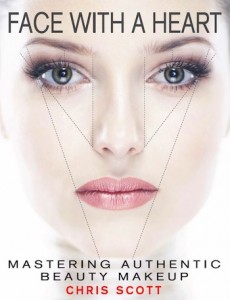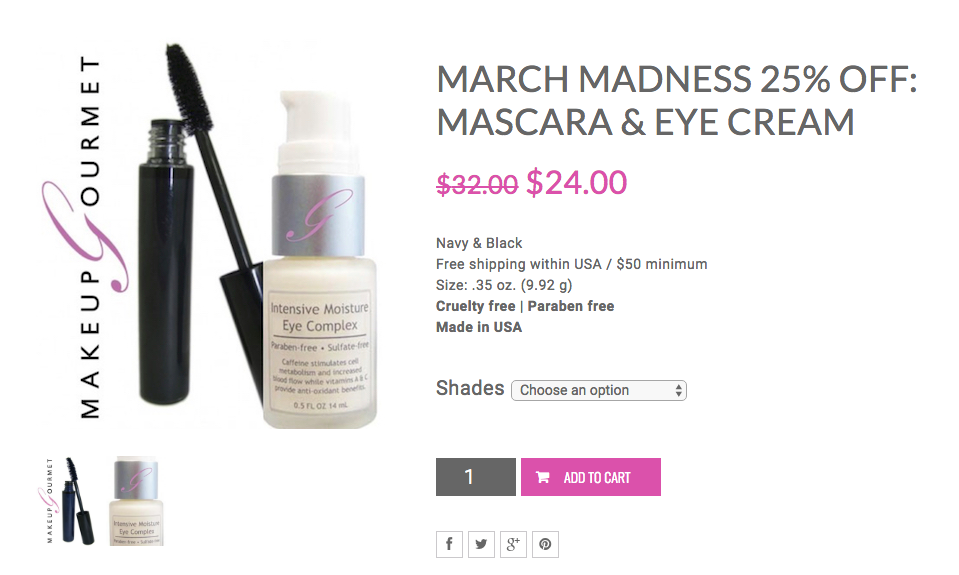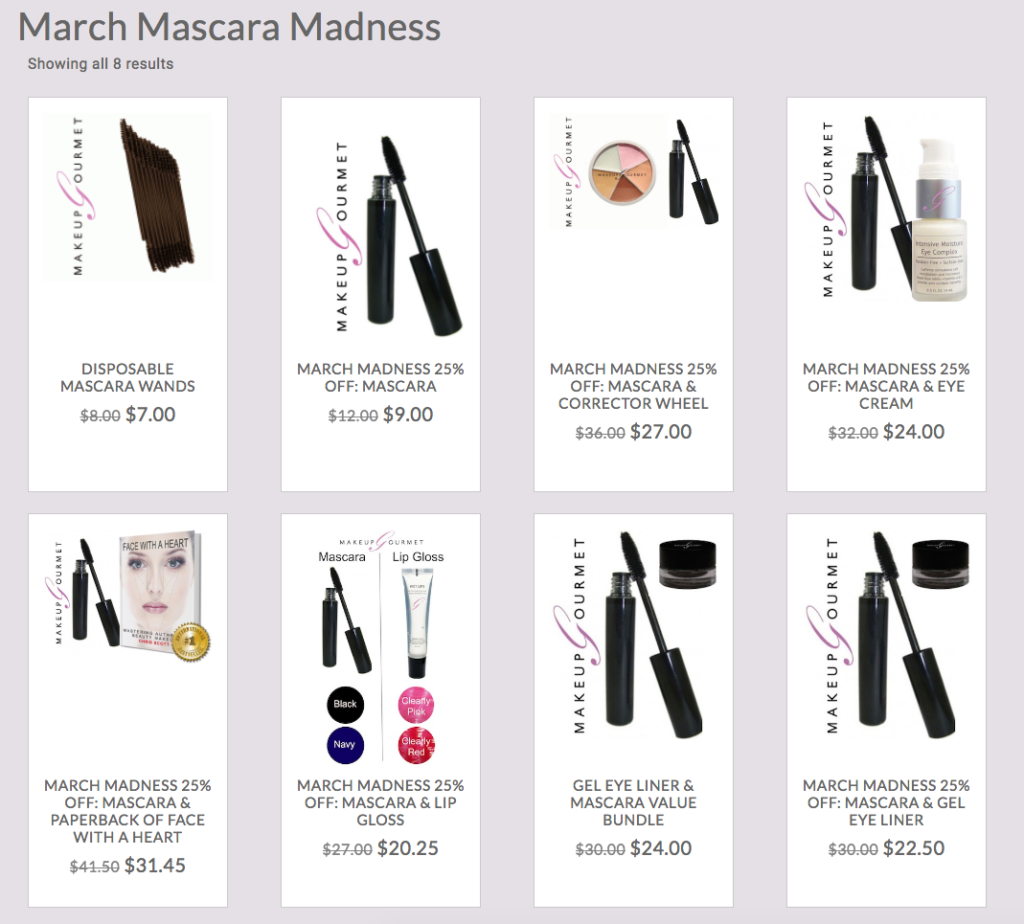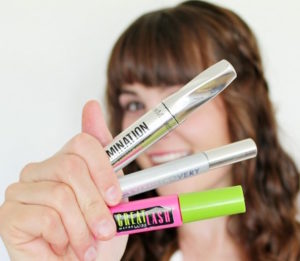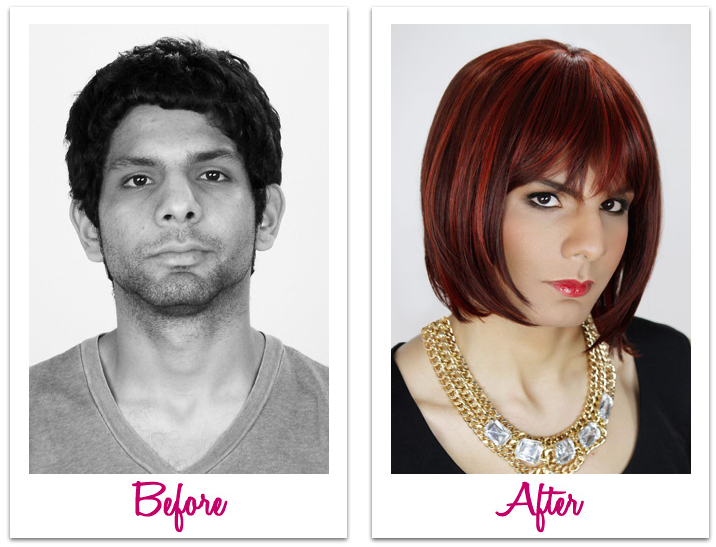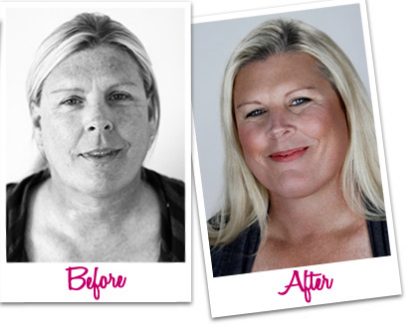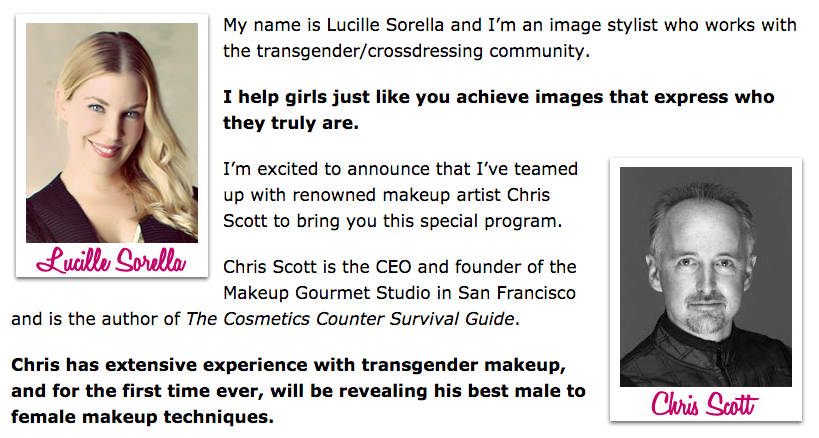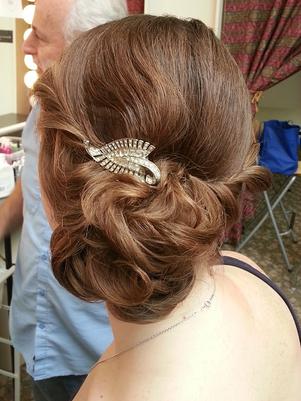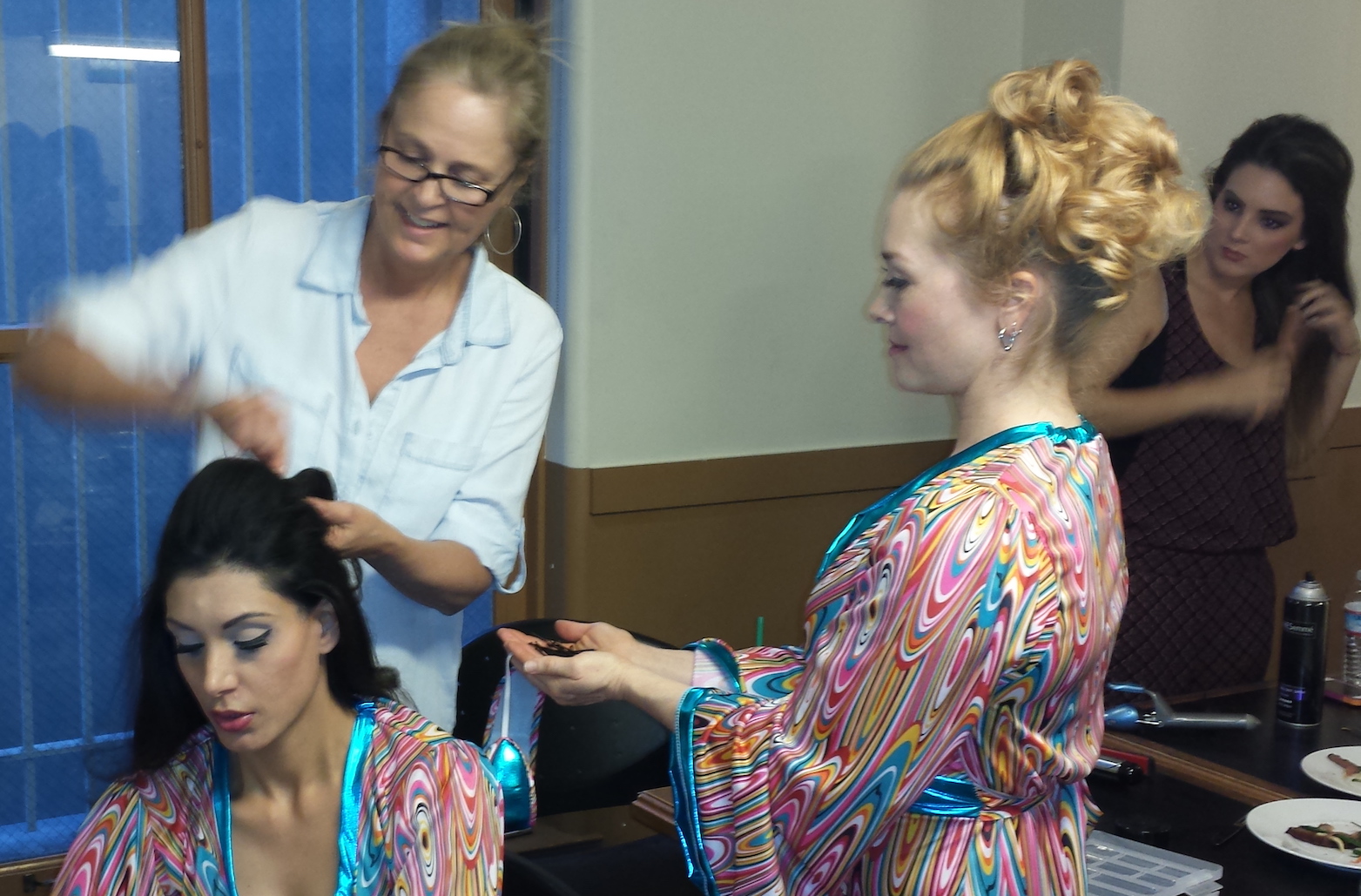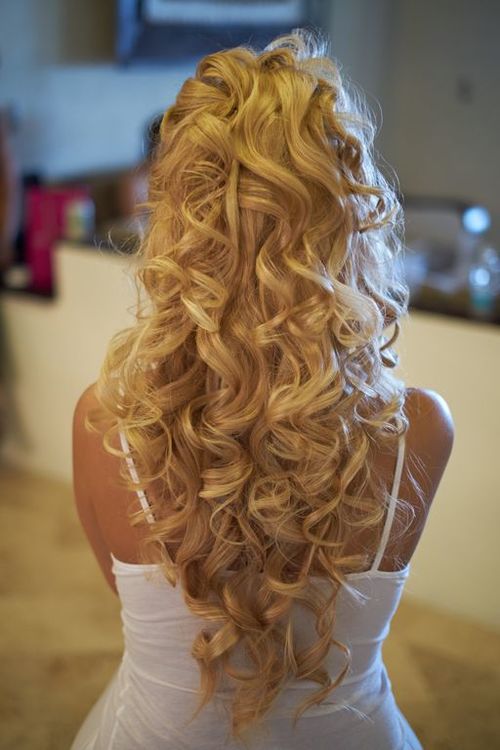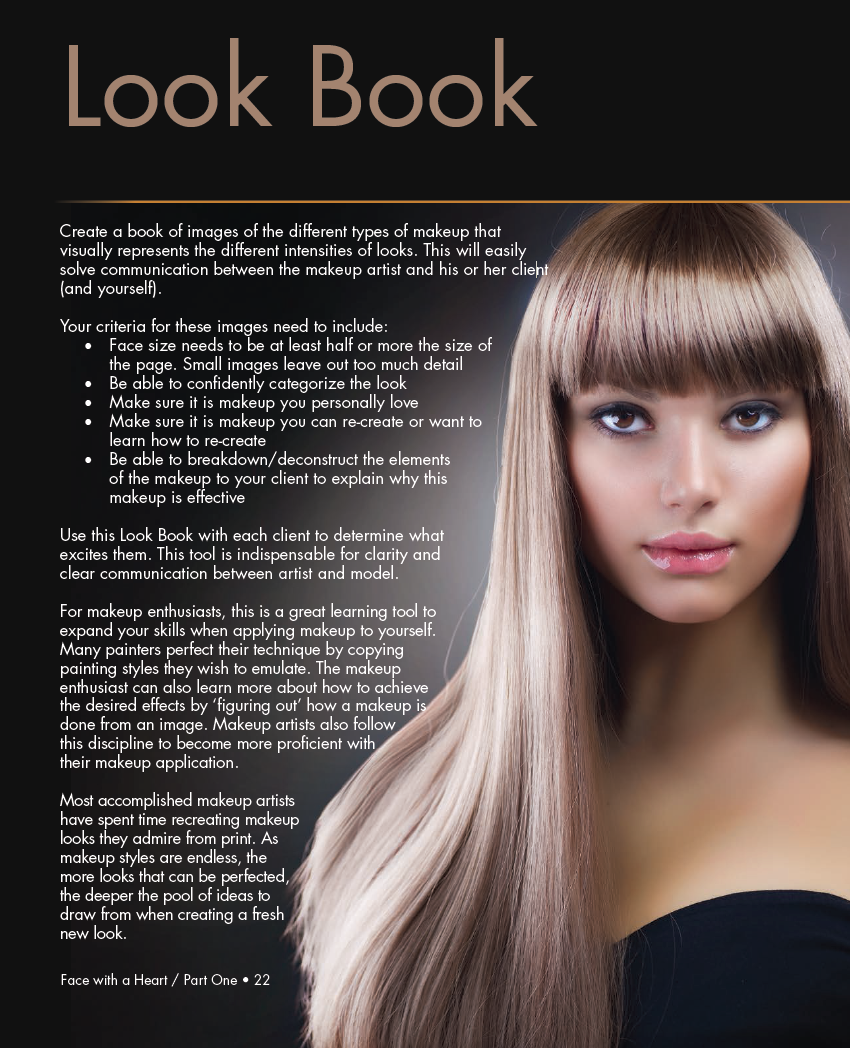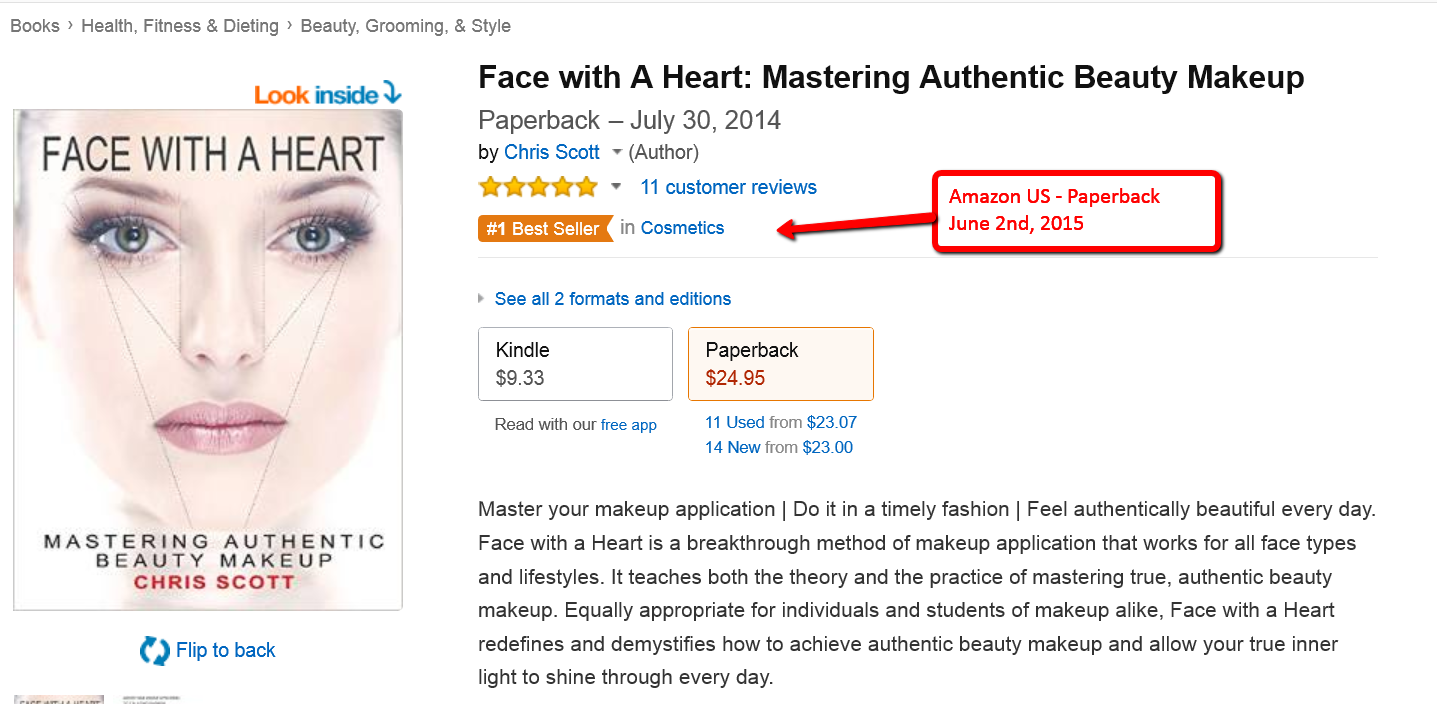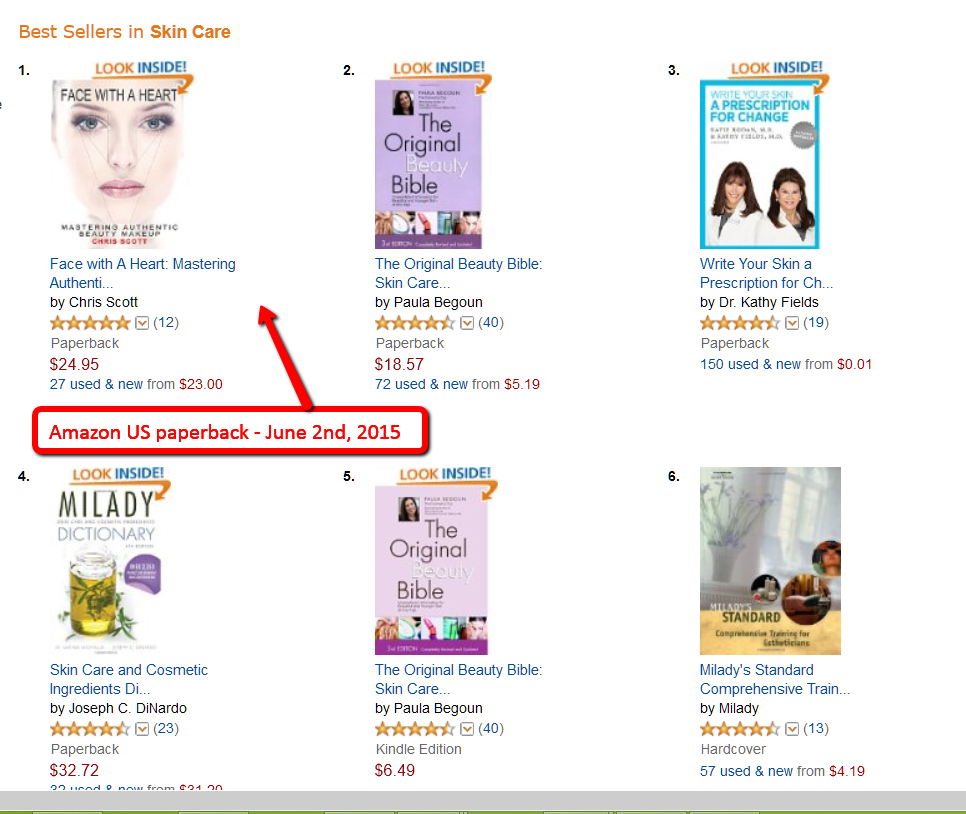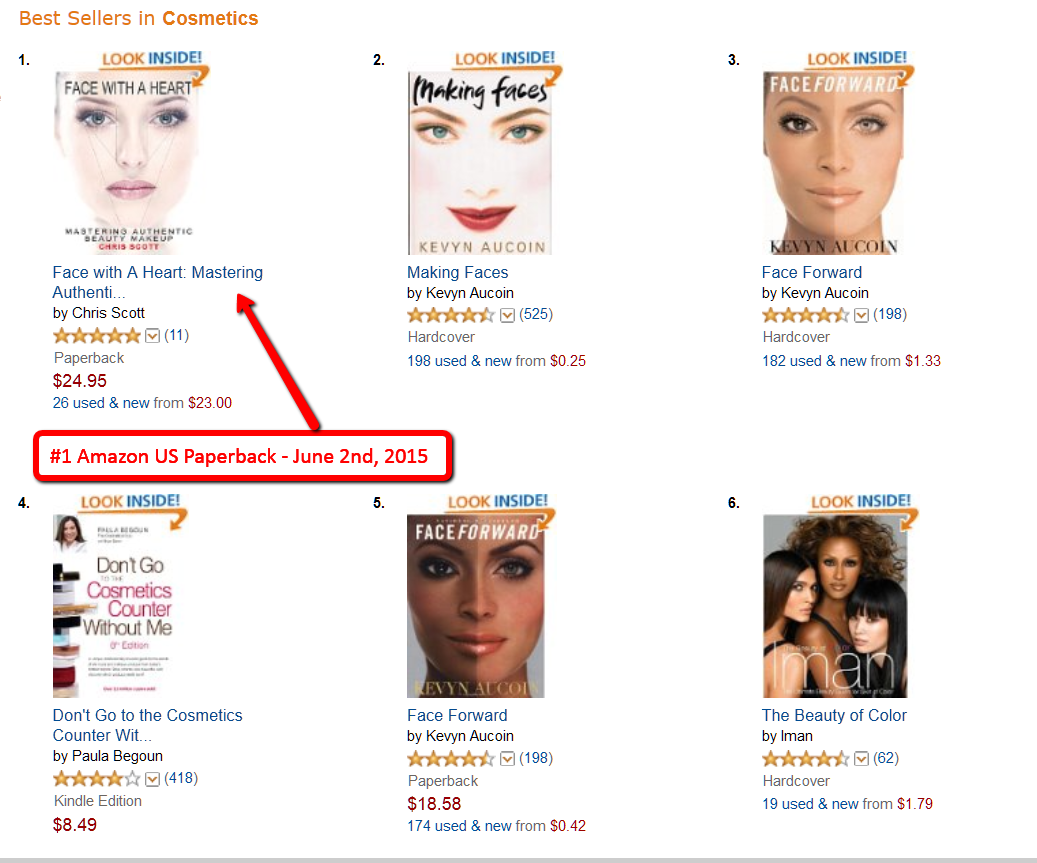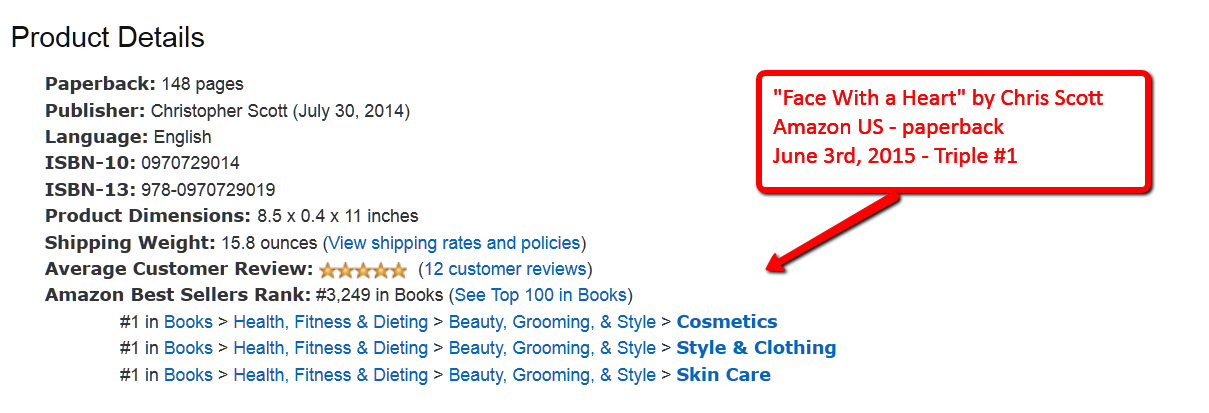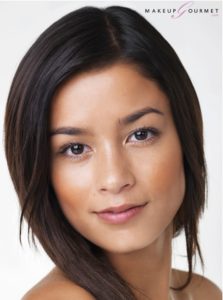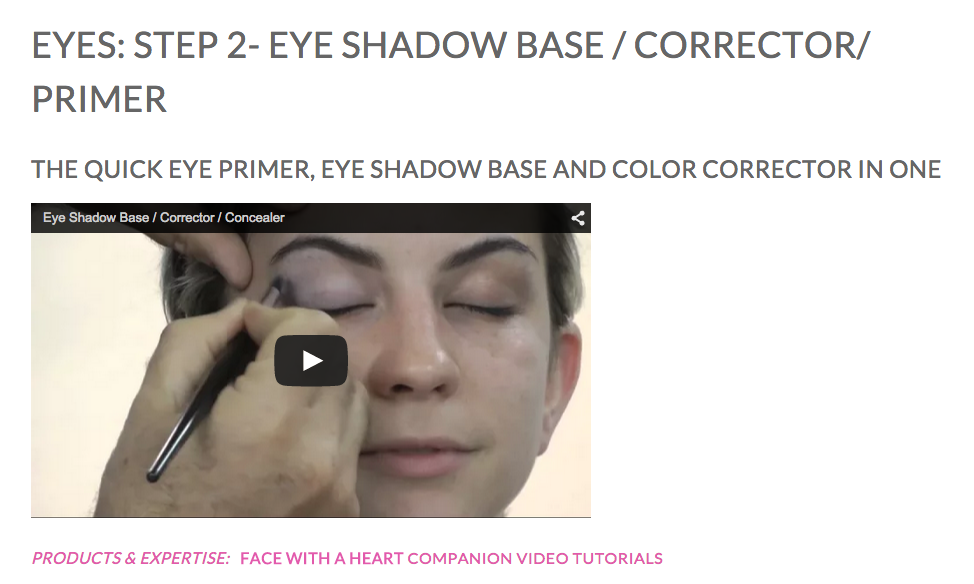Article written & submitted By Jane Winchester
The past few decades have seen the makeup industry make a big shift in terms of specialization of skincare according to skin type. For example, dry or mature skin can benefit from an extra boost of ingredients such as retinol, antioxidants and alpha hydroxy acids, whereas oily and combination skins are well suited to products with ingredients such as pomegranate oil (which is helpful in preventing breakouts). Luckily, there are many value-for-money products that work well with all skin types. In this post, we discuss how to prep and prime skin for foundation, suggesting products that can be part of your daily routine, regardless of your skin type.
What Ingredients Can All Complexions Benefit From?
There are so many naturally obtained ingredients that enable our skin to function at an optimal level, including:
* Green tea extracts: (which fight the free radicals that cause our skin to develop lines and to lose elasticity)
* Pomegranate oil: (which staves off skin cancer, increases circulation and promotes cell regeneration, to name just a few functions)
* Vitamins A, C & E: These vitamins are the ‘holy grail’ of most top skincare products. Collectively, they battle free radicals and stimulate cell regeneration.
* Aloe: This ingredient perfectly captures the right moisture balance, hydrating skin without producing an unattractive oily sheen.
Can Foundation Suit All Skin Types?
When it comes to makeup, you may be used to purchasing specific matte foundations (if you have oily skin ) or anti-ageing foundations (for dry or mature skin). Experts advising us on the right foundation for each skin type normally recommend foregoing stick foundations if one’s skin is oily, and powdery foundations if skin is dry, but liquid foundations can work perfectly well on all skin types. The key to success and long-lasting perfection, is the type of oil used. Makeup Gourmet’s Jojoba Liquid Foundation is the perfect product for all seasons and skin types, since it contains jojoba oil – which is similar to the natural oil our skin produces, and which absorbs the latter rather than separating it. Additionally, this type of oil does not clog pores.
What Steps are Involved in Prepping Skin for Makeup that Lasts All Day?
All skin types need to ensure they cleanse, tone, and moisturize skin before applying their primer and foundation. When it comes to your cleanser, you may have been told that oily skins should stick to foaming products and dry skins to crème cleansers. In fact, products like Makeup Gourmet Foaming Crème Cleanser are perfect proof of how a product that foams up can be used on dryer skins as well, owing to its potent blend of aloe and green tea extract.
The brand also has a Renewing Créme Cleanser, enriched with Glycolic and mixed fruit acid to gently slough off dead skin cells while leaving skin nice and soft, so your choice should ultimately depend on the type of product you prefer working with.
After cleansing, pat your face with a clean towel and apply Mild Toning Elixir Spray or Rosewater Cucumber Balancing Mist. Both products are good for dry, normal, and oily skin, and contain soothing extracts such as aloe, cucumber, and green tea. Just hold the bottle around 10-12 inches from your face, close your eyes, and spritz to enjoy the refreshing coolness.
The last step involves moisturizing your face. This will enable your primer, and later your foundation, to glide on effortlessly. A product like Daily Intensive Moisturizer is great for day and night and works well with all skin types, since it is enriched with Vitamin C, Pro Vitamin B, and Panthenol.
An ideal choice for all skin types, especially if you live in a sunny area or you do a lot of outdoor sport, is Antioxidant Day Crème SPF 15, formulated with hydrating aloe and Vitamins A, C, & E, and a handy ally against sunburn and the ageing effect that UV rays can have on our skin. If you have wrinkles around the eyes, at night time, use Intensive Moisture Eye Complex, rich in caffeine, to stimulate cell metabolism and improve circulation, and Vitamins A, C, & E to fight free radicals.
It is amazing to think how easy it can be to achieve a perfect look when it comes to makeup. Far from worrying about whether a particular foundation will be too drying or will lead to unwanted shine, it is best to opt for a liquid foundation made with oils that match those of your complexion. Cleansing, toning, and moisturizing is now also a lot less mysterious than it used to be. Gentle yet effective products are the way to go for flawless, toned, and beautifully luminous skin.
end

Follow-up info from thriftycrates(dot)com
Basic Tips for Choosing Foundation
There’s no such thing as “one-size-fits-all” foundation. Wearing a foundation that’s not appropriate for your skin can make it drier, oilier or cause it to flake. Determine the best foundation for your skin type, and then sample different foundations designed for your skin until you find one that feels right and gives you the coverage you need.
You need to take into account several factors to find the right foundation. Your skin tone, skin type, facial features, age, hair color and the look you want (natural, classic, high-fashion, edgy) are all components of the right foundation choice.
Finding a foundation that fits your skin type is the most important factor in choosing this makeup necessity. You can damage already compromised skin if you have dry skin and wear a foundation designed for oily skin, or wear foundation for dry skin and you are acne-prone.
Determine Your Skin Type
The first thing you need to do is accurately determine your skin type. Oily, dry, combination and sensitive are the four most common skin types. Your skin type can change a few times during your life, so it’s important to reexamine your skin every few years to make sure you’re still using the right foundation.
You could be making oily or dry skin worse or causing new problems if you’re using the wrong skincare products-soaps, scrubs, washes, etc.- on your face.
Regardless of your skin type, you should stop using heavy emollients, products containing fragrance, abrasive scrubs, harsh cleaners or cleaning brushes with stiff bristles.
Wash your face with a gentle cleanser and then follow it with a toner. Wait 15 to 30 minutes later, and judge how your skin reacts to the application.
You have dry skin if your skin becomes tight, flakes or feels dry. Oil diffusing over your face or shiny skin means you have oily skin. You have combination skin if your jaws and cheeks feel somewhat tight or dry and your T-zone (your nose, chin, and mid-forehead) becomes shiny or oily.
Most people have combination skin because the center of the face contains more oil glands than the cheeks.
How to Choose the Right Foundation
There are hundreds of well-known foundation brands at all price ranges. Some women buy foundation at the drugstore, while other go to beauty supply stores, Sephora, Ulta or high-end department stores. Regardless of the price or brand, if you know your skin type and have a specific overall look in mind, it’s much easier to find the right foundation.
Browse our list of some popular foundation types to determine the best foundation for your skin type.
Liquid Foundations with a Matte Finish
Pros
- Liquid foundations feel light on the skin and are easy to blend.
- They are safe if you have an oily or acne-prone complexion.
- Liquid foundations control excess shine and are excellent if you live in humid climates and other foundations don’t last long.
Cons
- Blending mistakes after the foundation sets may cause hard-to-correct streaking.
- Matte finish foundations may highlight wrinkles or flaky skin. Avoid this problem by applying moisturizer or serum before using foundation.
Pros
- Powder foundations are excellent for normal, slightly oily or slightly dry skin.
- They are lightweight and portable. Some brands offer a subtle glow, or luminescence, which softens the complexion.
- Use powder over your daily moisturizer to reduce the shininess if you use sunscreen or a lotion containing sunscreen.
Cons
- Powder foundations clump on oily or acne-prone skin and can slide into pores, making skin oilier.
- Avoid powder foundation if you have dry skin. The powder absorbs moisture and makes your skin drier.
- Powder foundation can cake on your skin if you put on too much of it, and make your face look like it has a mask over it.
Foundation Sticks
Pros
- Like pressed powder foundations, you can carry foundation sticks in your purse. They are great for touch-ups and can conceal pimples and other imperfections.
- You can use it as a concealer stick only, regardless of your skin type and it usually won’t lead to breakouts if you use it in a small area.
Cons
- Foundation sticks can melt if you keep them in your purse or backpack outdoors for a long time. They can break if you roughly handle them.
- It’s hard to blend waxy foundation stick over your cheeks or other large areas.
- Foundation sticks can clog pores to lead to breakouts. It works better with dry or normal skin and is a poor choice for oily or even combination skin.
Anti-aging Foundations
Pros
- Also called anti-aging serums, these foundations provide coverage and nourish all skin types, but are particularly suitable for mature skin.
- Use an anti-aging foundation along with cleansers and lotions designed to prevent lines and wrinkles. This combination helps keep skin youthful-looking. You don’t need to be an older adult to use anti-aging serum; even young people can benefit from using them.
Cons
- Some anti-aging foundations are advertised as miracle-workers. Some foundations can certainly refresh your face and make you look younger, but no makeup can turn you into a movie star overnight.
- The amount of age-defying ingredients in anti-aging foundation varies. Some foundations only contain small amounts of Retin A, Vitamin C serum and other ingredients necessary for younger-looking skin.
Pros
- Hydrates skin without being greasy.
- Gives skin sheen to make it more youthful-looking.
- Satin or satin matte finishes are perfect for normal to dry skin.
Cons
- Not recommended for oily skin since the moisturizer makes oily areas even shinier.
- Liquid foundations aren’t suitable for on-the-go touch ups unless you have a small sample bottle.
Pros
- A tinted moisturizer covers up uneven areas and offers light coverage.
- Tinted moisturizer is great for warm months when little coverage is needed.
Cons
- Tinted moisturizer works best for women with healthy skin.
- Even if a tinted moisturizer has SPF, use sunscreen with an SPF of 40 or more for additional protection.
Compact Cream to Powder Foundations
Pros
- You can blend cream to powder foundations with a brush or sponge.
- This foundation is portable and excellent for touch-ups.
- Cream to powder foundation is best for normal, slightly dry or slightly oily skin.
- Offers full to sheer coverage
Cons
- The heaviest-looking foundation.
- Not for excessively dry or oily skin, as it tends to accentuate those traits.
Find the Right Shade for Your Skin Tone
Match the foundation shade to the skin on your chest, not your face, to choose an accurate color. This method works best if you are careful about protecting your face with a good sunscreen.
Test a spot of foundation on the back of your hand and let it stay on your skin for a few minutes to see how it absorbs. Does it change color when it dries? You can check the color in natural sunlight – you don’t need to rely solely on the artificial store lighting or make-up mirror lights to give you an accurate appraisal of the shade.
Find the best
foundation undertone by checking the color of the veins on your wrist. Blue or purple veins mean the foundation you choose should have cool undertones.
Check Out the Foundation’s Ingredients
Choose a foundation with salicylic acid if you have oily or acne-prone skin. Buy a foundation that contains SPF 15 sunscreen or more if you spend a lot of time outdoors and don’t want to use a separate sunscreen on your face.
Mineral foundation is made with minerals and may contain a minimum of chemical ingredients or no chemicals at all. It is usually applied with a fluffy brush. Ingredients in mineral foundation include some of the same ones you’ll find in other foundations, like zinc oxide, mica, and iron oxides.
Some women like to apply foundation primer before putting on the foundation. Foundation primer fills in the pores in your skin and allows the foundation to go on smoothly. It works the same way paint primer does. You can apply moisturizer before putting on foundation to get the same effect, but some women prefer primer. Experiment with both methods to see which one works best for you.
Wrapping Up
Finding the best foundation for your skin type can involve a bit of trial and error. However, if you follow our advice, you’ll likely save a good deal of money and locate your ideal product sooner. Best of luck!


I am handing you a Lucky $20. It is $20 towards your next Makeup Gourmet purchase(s) of $100 or more.
This Lucky $20 has no restrictions. It works with all offerings site-wide including sale and value bundle items.
It also may be used as often as you like until the Chinese New Years parade in San Francisco February 24 2018, Year of the Dog.
The Lucky $20 Coupon Code is: lucky20
Freely give this Lucky $20 to your friends. There are pink icon share links near the top of this page.

Thank you for stopping by (and thank you Jane for your article).
Warmly,
Chris Scott
12th of January, 2018




Please let me know if this blog was of value to you and share your own Authentic Beauty Makeup tips in the comments box below. I would love to hear how you get on trying this new method of makeup application – tell me how useful you find the tutorials and how you found the results. You can also use the comments box to tell me what interests and concerns you when it comes to which makeup colors to choose. Please let me know so I can fashion future blogs that are relevant and interesting to you.
Want to know more? My new book, Face with a Heart: Mastering Authentic Beauty Makeup is available on Amazon now.
Makeup Gourmet Chris Scott’s new series of how-to video tutorials based on his
#1 international best seller Face with a Heart Mastering Authentic Beauty Makeup

CHRIS SCOTT, M.A. is the creator of San Francisco-based Makeup Gourmet®. Over his nearly 30-year career, in addition to doing makeup for top models from every corner of the planet, he also had the honor of working for legends like Paul McCartney, US Vice President Al Gore, Supreme Court Justice Sonia Sotomayor, Shirley Temple Black, Maya Angelou and Olympic Gold medalists Oksana Baiul and Kristi Yamaguchi. He was the creator and host of the TV show ‘Makeup Gourmet’ from 2008 – 2010. He was a leading Chanel Beauté national artist for over two decades, and is also the creator and guest teacher of Fashion Makeup at the Academy of Art University in San Francisco. He created his unique Makeup Gourmet line to ensure his clients and the public could have access to high-quality, ethically produced, ‘green’ makeup and skincare with a low-carbon footprint. Chris is also the author of Cosmetic Counter Survival Guide: How to Buy the Right Skin Care and Makeup and the international #1 bestseller Face with a Heart: Mastering Authentic Beauty Makeup.
‘The grass is always greener where you water it.’
CS
